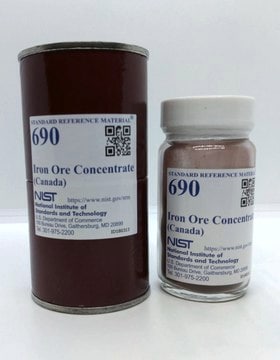PHG0005
BIS-TRIS propane
Pharma Manufacturing
Synonym(s):
1,3-Bis[tris(hydroxymethyl)methylamino]propane
About This Item
Recommended Products
biological source
synthetic
Quality Level
form
powder
technique(s)
cell culture | mammalian: suitable
impurities
Endotoxin, microbial, and trace metals; tested
useful pH range
6.3-9.5
pKa (25 °C)
(1) 6.8, (2) 9.0
mp
164-165 °C (lit.)
suitability
suitable for manufacturing use
foreign activity
Cytotoxicity, DNase, NICKase, RNase, and Protease; tested
SMILES string
OCC(CO)(CO)NCCCNC(CO)(CO)CO
InChI
1S/C11H26N2O6/c14-4-10(5-15,6-16)12-2-1-3-13-11(7-17,8-18)9-19/h12-19H,1-9H2
InChI key
HHKZCCWKTZRCCL-UHFFFAOYSA-N
Looking for similar products? Visit Product Comparison Guide
General description
M-Clarity Program
Buffer quality is vital for the success of biopharmaceutical processes, because buffers are indispensable in nearly every production step.
Our broad portfolio of buffer materials manufactured under appropriate controls is tailored to your needs. Ranging from non-GMP grades for low-risk application, to IPEC-PQG GMP for higher-risk applications, we have products covering all your manufacturing needs.
Application
A review of DNA polymerase techniques lists bis tris propane as a suitable buffer for PCR methods as a universal buffer pH gradient is employed.
Legal Information
replaced by
Storage Class Code
11 - Combustible Solids
WGK
WGK 3
Flash Point(F)
Not applicable
Flash Point(C)
Not applicable
Certificates of Analysis (COA)
Search for Certificates of Analysis (COA) by entering the products Lot/Batch Number. Lot and Batch Numbers can be found on a product’s label following the words ‘Lot’ or ‘Batch’.
Already Own This Product?
Find documentation for the products that you have recently purchased in the Document Library.
Customers Also Viewed
Our team of scientists has experience in all areas of research including Life Science, Material Science, Chemical Synthesis, Chromatography, Analytical and many others.
Contact Technical Service





